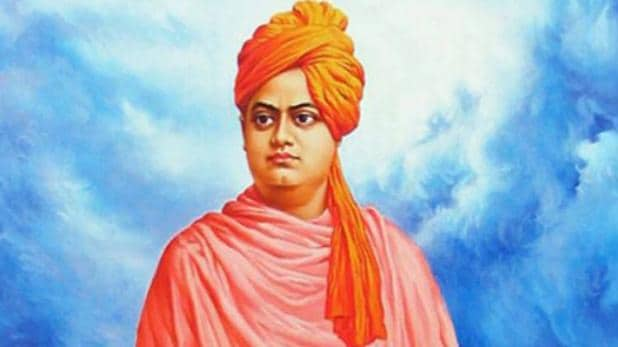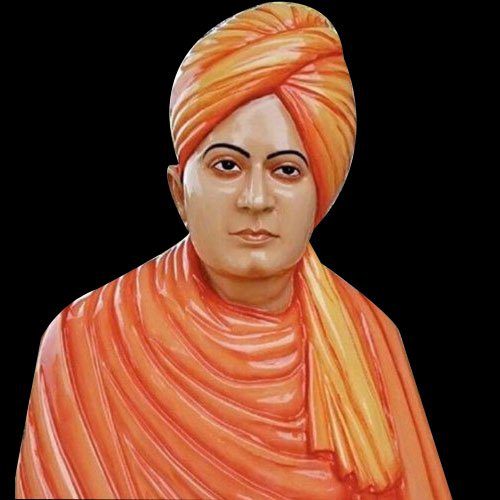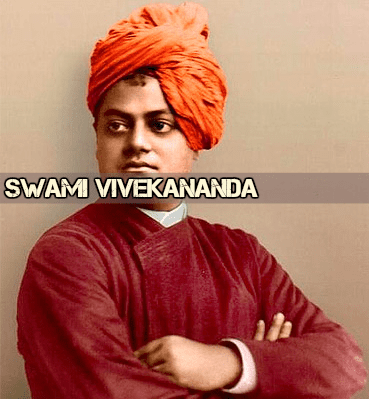Born as Narendranath Dutta, later rechristened as Swami Vivekananda (literally meaning: the bliss of discerning wisdom), was a Hindu monk and spiritual leader of India. He was a great thinker, brilliant orator and a passionate patriot. Prime disciple of Sri Ramakrishna Paramahansa, who helped to carry forward the teaching and philosophy of his guru. He even took his philosophy to a new paradigm. He’s also been credited for re-establishment of Hinduism as a revered religion on the world stage. The young monk inspired many with his words, which have become paths to self-improvement for the youth. Which is why on his birth anniversary, January 12th, is celebrated as National Youth Day in India. Let us recollect some lesser or unknown facts about the great personality:
Early life:
- Although Swamiji, later took upon the path to become a monk and lived off his life as a pauper. He was born in a very affluent family, to a father who was a very successful attorney at the time and a very devout mother.
- He was an avid reader from a young age. He had read scriptures from Hinduism like Bhagwat Gita to Upanishads, to Western philosophy, history and spirituality by David Hume, Johann Gottliebs Fichte and Herbert Spencer.

Quest for greater truth:
- Although he was bred by a devout mother, due to his worldly knowledge he underwent a deep spiritual crisis at the start of his youth. For some time he would even believe in Agnosticism.
- As his quest to know about the existence of god continued, he visited various prominent spiritual leaders from all religion and he would question them “have you seen God?”. For a long time, he didn’t get any satisfactory answer, till he met RamkrishnaParamashansa, who replied “yes, I have. I see god as clear as I see you, only in a much deeper sense”. At first, this answer didn’t impress the young curious mind much, but gradually won over the young man with love and passion.
Life and responsibility:
- After the death of his father, his family was reduced to poverty. The responsibility of his family fell onto his shoulders. On many mornings he would tell his mother that he had lunch and he would go out so others would get a larger share of food. He later wrote “On such days I had very little to eat, sometimes nothing at all. I was too proud to tell anyone”.
- After the demise of his father, his family fell into deep financial problems. On Ramkrishna dev’s suggestion, he went to the temple to pray. But once he found himself in front of the goddess he could not ask for money of wealth. He could not ask for money and wealth, instead, he resorted to asking for Vivek (conscience) and Vairagya (reclusion).
Travel around the country:
- After the passing of Sri Ramakrishna Paramahansa, he decided to walk around the country. As he believed that sannyasin staying the same place would in course of time be inflicted by the ills of society. Whereas a sannyasin always on move will be shielded himself from the afflicted society. Thus he began his journey to measure the length and breadth of the country.
- 1888: while walking remaining 30 miles from Agra to Vrindavan, the Swami saw a man smoking chillum (ganja; cannabis). He said to the man that he wishes to smoke as well. Bewildered by such requests the man asked: “you are a sannyasin, a maharaja and I’m a bhangi (low caste)”. Swami stood up to leave, but suddenly he said “I’m a sannyasin I have severed my ties with all caste and family. Why shouldn’t I smoke?”
- 1888: he decided to stop begging for food until someone willingly gives him some. One-day till, he was severely starved, having no one who had offered any food to him. While walking someone called him from behind, but to test the man’s patience he began to run. The man ran after him. The man offered him food and ask him to kindly accept it. Tears flow from Vivekananda’s eyes as he believed God has always been with him.
- Swami Vivekananda while his stay at Rishikesh fell severely ill down with malaria. One day his pulse rate and heartbeat nearly stopped. There was no physician nearby, Swamiji felt his end was near. One old sannyasin came to his cottage and gave him honey and pipulchurna and left. After a few hours, Swamiji regained his consciousness.
- In Meerut, Swamiji use to borrow from the collected work of Sir John Lubbock. Every day he would return the previous book, to issue a new one from the city library. The librarian once questioned him, whether he even finished any books he had issued or not? Only to know Swamiji had not only read it but also memorized it.
Parliament Of World’s Religion and post-world tour:

- He received an invitation from Parliament of World’s Religion. That was to be held in July 1893. One of his disciple Maharaja Khetri had financed his travel.
- In Chicago he later found out the Parliament would not open before mid-September of 1893. He lacked money to stay in Chicago. So he moved to Boston where the cost of living was lower. The first session of Parliament of World’s Religion was held on 11th September 1893.
- After his renowned speech at Chicago for which he received a standing ovation. He toured America for the next two and a half years.
- He opened Vedanta Society at New York in 1984.
- He travelled to United Kingdom thrice between 1895 and 1896. There he met Margaret Nobel (Sister Nivedita) and made her his disciple.
Débâcles of family life:
- After the death of his paternal uncle, Taraknath, his wife Gyanadasundari ousted Vivekananda’s family and filed for a suit in the court. Vivekananda fought against various litigation suits for 14 years. Till the last Saturday of his life 28 June 1902, when he put an end to financial cases after paying some amount of financial compensation.
- When Jogendrabala, his sister committed suicide, Vivekananda to YogenMaharaj, “do you know why we are so talented on our thinking? There has been a history of suicide in our family. There have been many in our family who had taken their own lives. We are eccentric. We do not think. We simply do what like to, do not worry about the consequences.”
- The Maharaja of Khetri and Ajit Singh use to send 100 rupees to Swamiji’s mother to help her tied over financial problems. The arrangement was a closely guarded secret.
Idea of Nationalism:
- The concept of Nationalism by Vivekananda is based on the concept of spiritualism. He linked India’s regeneration to her age-old tradition of spiritual goal. He said, “Each nation has a destiny to fulfil, each nation has a message to deliver, each nation has a mission to accomplish. Therefore, we must have to understand the mission of our own race, the destiny it has to fulfil, the place it has to occupy in the march of nations, the role which it has to contribute to the harmony of races”. His nationalism is based on Humanism and Universalism, the two cardinal features of Indian spiritual culture.

